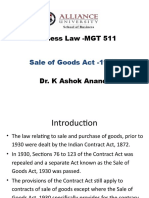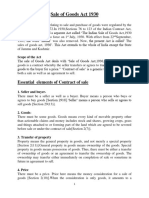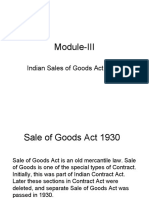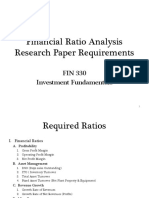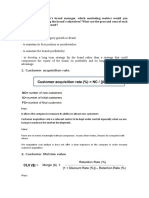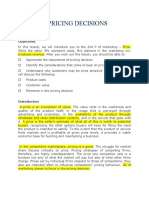0% found this document useful (0 votes)
34 views22 pagesSOGA
The Sale of Goods Act, 1930 (SOGA) is a key legislation in Indian commercial law that regulates contracts for the sale and purchase of movable goods, outlining the rights and duties of buyers and sellers. It provides a legal framework for contract formation, ownership transfer, and remedies for breach, while distinguishing between sales and agreements to sell. The Act aims to promote fairness and clarity in commercial transactions, ensuring accountability and reducing disputes.
Uploaded by
siddheshvyas7Copyright
© © All Rights Reserved
We take content rights seriously. If you suspect this is your content, claim it here.
Available Formats
Download as DOCX, PDF, TXT or read online on Scribd
0% found this document useful (0 votes)
34 views22 pagesSOGA
The Sale of Goods Act, 1930 (SOGA) is a key legislation in Indian commercial law that regulates contracts for the sale and purchase of movable goods, outlining the rights and duties of buyers and sellers. It provides a legal framework for contract formation, ownership transfer, and remedies for breach, while distinguishing between sales and agreements to sell. The Act aims to promote fairness and clarity in commercial transactions, ensuring accountability and reducing disputes.
Uploaded by
siddheshvyas7Copyright
© © All Rights Reserved
We take content rights seriously. If you suspect this is your content, claim it here.
Available Formats
Download as DOCX, PDF, TXT or read online on Scribd
/ 22
























